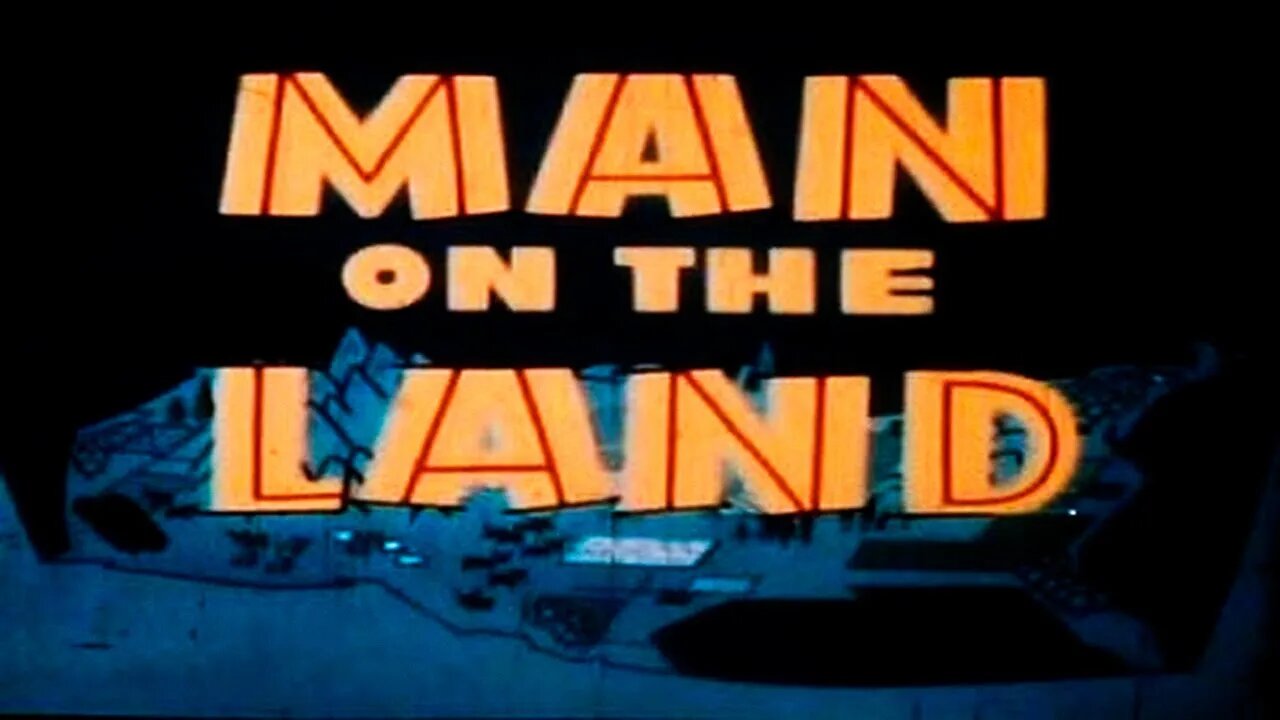Premium Only Content

Man On The Land (1951)
Sponsors: American Petroleum Institute
Production: United Productions of America (UPA)
Animation: Art Babbitt, Roger Daley, Pat Matthews, Tom McDonald, Grim Natwick
Direction: Bill Hurtz
Producer: Herb Klynn
Music: William Lava
Voices: Vic Perrin, Bill Scott
Released: 1951
The American Petroleum Institute presents an inspiring tale of man's history taming nature through ingenuity and invention, culminating in the modern American farmer, who relies on the oil industry to fuel his machinery.
This short movie starts with prehistoric times and ends in the present, showing how oil-powered machines have banished the threat of famine.
Originally a public domain film from the Library of Congress Prelinger Archives, slightly cropped to remove uneven edges, with the aspect ratio corrected, and one-pass brightness-contrast-color correction & mild video noise reduction applied.
The soundtrack was also processed with volume normalization, noise reduction, clipping reduction, and/or equalization (the resulting sound, though not perfect, is far less noisy than the original).
Agriculture is the science and art of cultivating plants and livestock. Agriculture was the key development in the rise of sedentary human civilization, whereby farming of domesticated species created food surpluses that enabled people to live in cities.
The history of agriculture began thousands of years ago. After gathering wild grains beginning at least 105,000 years ago, nascent farmers began to plant them around 11,500 years ago. Pigs, sheep and cattle were domesticated over 10,000 years ago. Plants were independently cultivated in at least 11 regions of the world.
Industrial agriculture based on large-scale monoculture in the twentieth century came to dominate agricultural output, though about 2 billion people still depended on subsistence agriculture into the twenty-first.
Modern agronomy, plant breeding, agrochemicals such as pesticides and fertilizers, and technological developments have sharply increased yields, while causing widespread ecological and environmental damage.
Selective breeding and modern practices in animal husbandry have similarly increased the output of meat, but have raised concerns about animal welfare and environmental damage.
Environmental issues include contributions to global warming, depletion of aquifers, deforestation, antibiotic resistance, and growth hormones in industrial meat production. Genetically modified organisms are widely used, although some are banned in certain countries.
The major agricultural products can be broadly grouped into foods, fibers, fuels and raw materials (such as rubber). Food classes include cereals (grains), vegetables, fruits, oils, meat, milk, fungi and eggs. Over one-third of the world's workers are employed in agriculture, second only to the service sector, although the number of agricultural workers in developed countries has decreased significantly over the centuries...
The American Petroleum Institute (API) is the largest U.S. trade association for the oil and natural gas industry. It claims to represent about 650 corporations involved in production, refinement, distribution, and many other aspects of the petroleum industry.
The association describes its mission as to influence public policy in support of a strong, viable U.S. oil and natural gas industry. API's chief functions on behalf of the industry include advocacy, negotiation and lobbying with governmental, legal, and regulatory agencies; research into economic, toxicological, and environmental effects; establishment and certification of industry standards; and education outreach. API both funds and conducts research related to many aspects of the petroleum industry...
-
 LIVE
LIVE
SilverFox
14 hours ago🔴LIVE - WoW NEWBIE - Level 15 Warrior
417 watching -
 LIVE
LIVE
wyspers
1 hour ago1st Rumble Stream! - Black Friday - College Football 25 - Dynasty year 2
121 watching -
 3:22:48
3:22:48
RG_GerkClan
4 hours agoLIVE: It's Time...to Dominate - GrayZone Warfare - Gerk Clan
16.8K2 -
 41:43
41:43
Styxhexenhammer666
2 hours agoFriday LIVE: Joy Reid Goes Insane, BDS Legislation, Liz Krueger and Secession
22K17 -
 1:29:10
1:29:10
Real Coffee With Scott Adams
2 hours agoEpisode 2674 CWSA 11/29/24
42.7K10 -
 2:58:55
2:58:55
Wendy Bell Radio
7 hours agoCrazy Doesn't Sell
76.2K66 -
 36:13
36:13
The Why Files
4 days agoProject Redsun: NASA's Secret Manned Missions to Mars
54.5K170 -
 1:39:12
1:39:12
Jeff Ahern
4 hours ago $5.50 earnedFriday Freak out with Jeff Ahern
41K -
 48:42
48:42
PMG
1 day ago $2.03 earned"Hannah Faulkner and Nora Clinton | How Life Under Communism Crushed the Human Personality"
14K2 -
 LIVE
LIVE
Clownfish TV
5 days agoClownfish TV News 24/7
185 watching